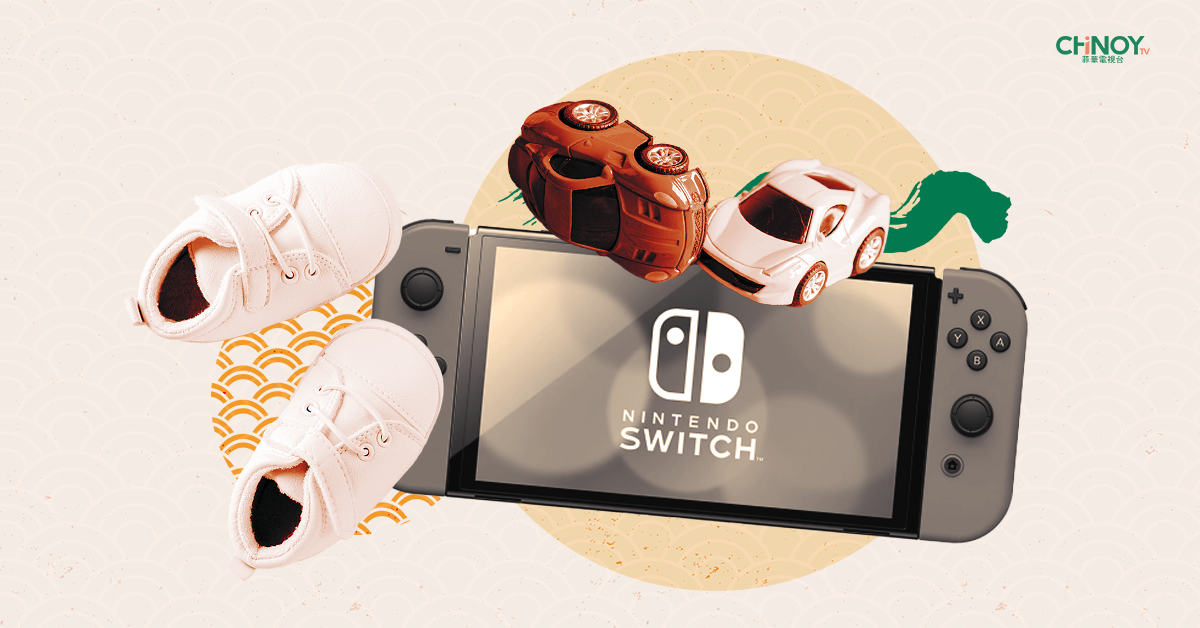The Spoiled Shoti Syndrome: Cared for, Coddled, and Quietly Caged

In the heart of many Chinese-Filipino households, there is often one family member who seems to glow with effortless charm, the shoti 弟弟 dìdi (little brother). The youngest son. The baby boy. He is affectionately called by pet names, lavished with attention, and spoken of with both fondness and teasing by siblings and relatives alike.
“He’s the favorite,” older siblings might say with a mixture of eye-rolls and resignation.
“Don’t make him carry that, it’s heavy,” says an aunt at a family gathering, gently guiding the shoti away from chores.
“He’s still young,” parents often remark, even when the shoti is already in his twenties or thirties.
From the outside, it seems like the shoti leads a charmed life. But in the quiet spaces of therapy rooms, a different story sometimes emerges. It is one that is more layered, more human, and deeply entangled with love, protection, and unintended emotional consequences.
Though I am not a shoti myself, I grew up as an only child, I’ve worked with numerous Lannang families and shotis in my clinical practice as a clinical psychologist. Over the years, I’ve come to see how the shoti role, while rooted in care, can evolve into something quietly constraining. When love overextends and protection becomes persistent, a shoti may find himself emotionally unprepared, unsure of who he is, and silently struggling under the weight of being the “forever baby.”
*All client stories included in this article are presented with full anonymity and shared with informed consent. Identifying details have been changed to protect confidentiality.*
This article is a reflection on those stories and an invitation for Chinoy families to reflect on how love can evolve into trust.
The Shoti Archetype: Spoiled, Sheltered, and Sometimes Silenced
In many Chinese-Filipino households, family roles are guided not only by age but by long-standing cultural beliefs. The eldest son, or ahia, is usually tasked with leadership and responsibility. The eldest daughter becomes the quiet caregiver. The shoti, particularly when he is the youngest or only boy, is often perceived as the extension child, the one born when the family has already weathered its storms, gained some stability, and is now able to relax and dote.
He is the child who gets away with more. He is the one given lighter chores, more second chances, and the benefit of the doubt. And while this role comes with warmth and generosity, it also creates a soft but firm enclosure: the assumption that he isn’t ready to stand alone.
One of my clients, Randy (not his real name), 25 years old, shared in a session:
“I know I’m lucky. I didn’t have to work during college, my parents still helped me out. But I also feel like I’m not allowed to grow up. When I talk about moving out or making my own decisions, they say, ‘Bata ka pa, wag mo munang problemahin yan.’ But I’m not a child anymore. I want to live my own life.”
His voice carried no anger, just confusion and fatigue. He didn’t resent his family. He loved them. But love, when mixed with overprotection, had left him unsure of his own capabilities.
When Love Becomes a Cage
Infantilization often begins innocently. A parent steps in to help. An older sibling shields the shoti from criticism. A relative insists that he rest while others work. It is done in the spirit of care. But when this dynamic persists into adolescence and adulthood, it can slowly erode self-confidence and delay the development of core life skills.
Joseph, another client, age 28, who works in marketing, recounted a moment that crystallized this struggle for him:
“I got a promotion at work. It was a big deal for me, and I told my mom. Her first reaction was, ‘Oh no, baka ma-stress ka.’ She meant well, but it felt like she didn’t think I could handle success. I just wanted her to be proud, not worried.”
This is the subtle sting of infantilization being seen as precious but never powerful.
In psychological terms, the shoti syndrome may develop what we call low self-efficacy, the internalized belief that one is not capable of managing challenges independently. This doesn’t mean he is weak or incompetent. In fact, many shotis are deeply intelligent, compassionate, and intuitive. But years of being told “huwag na, kami na bahala” can leave them unsure of their ability to lead their own lives.
The Unspoken Guilt of Being the Favored One
Favoritism, real or perceived, is another common thread in shoti narratives. The shoti often knows he receives more leniency or support than his siblings did. And while this may bring comfort, it can also carry guilt.
Emil, 30, a soft-spoken entrepreneur, shared:
“My ahia told me once, ‘You had it easy.’ And he’s not wrong. I didn’t have to go through what he did. But I didn’t ask for special treatment. Now, I feel like I have to prove myself double just to be taken seriously.”
This sense of emotional debt can lead the shoti to become overly compliant, self-sacrificing, or disconnected from his own desires. He may stay close to home not out of true dependence but out of fear that independence would look like betrayal.
And yet, despite these internal tensions, many shotis hesitate to speak up. The fear of disappointing the family or being labeled ungrateful keeps them quiet. In therapy, they often whisper what they cannot say out loud at home:
“I love them. But I also need space to become myself.”
The Shoti and Identity Exploration
Infantilization also intersects with identity development. For shotis who do not fit into traditional roles, whether in terms of gender, sexuality, career choice, or personality, the “baby” label can become even more suffocating.
One client, Neil, 23, quietly coming to terms with being gay, said this:
“My parents always say, ‘You’ll understand when you’re older.’ But I am older. I know who I am. They just don’t want to see it. They still see me as the little boy who plays piano in the living room. But I’ve grown up.”
For many queer shotis, the infantilized role is used, often unconsciously, to dismiss expressions of identity. It becomes a soft form of erasure. It’s not open rejection, but it’s also not acceptance.
How Families Can Support Their Shoti’s Growth
For families reading this, know that love and overprotection can look very similar on the surface but feel very different from within. The goal is not to stop caring, but to allow care to grow up alongside the shoti.
Families can begin by inviting the shoti into real conversations, not just decisions about chores or errands, but discussions that require trust in his emotional maturity.
They can listen with openness, especially when he expresses something unfamiliar—an ambition, a belief, a part of himself that breaks from the family’s template.
They can affirm his choices, even when they are not the ones they would make. Saying, “We trust you,” holds far more power than, “Sigurado ka ba?”
And perhaps most importantly, they can release guilt as a tool of control. Instead of reminding him of all that was given, they can celebrate all that he is choosing to become.
To the Shotis Who Are Still Finding Their Voice
You are allowed to grow.
You are allowed to lead.
You are allowed to ask for space, to try and fail, to discover who you are beyond who your family remembers.
You are not ungrateful for wanting independence.
You are not selfish for wanting something different.
And you are not disloyal for choosing to step out of the baby role you never asked to play.
Your family may have shaped your story, but you are still the one who gets to write it.
When Love Learns to Let Go
The role of the shoti is one shaped by deep affection. But when the role becomes a lifelong identity especially one that silences maturity or self-expression it is time for a shift.
As a community, we can hold on to love while letting go of control. We can preserve tradition without imprisoning identity. And we can allow our shotis to be more than who we remember to be, instead, who they were always meant to become.
NOTE: Client stories featured in this article were shared with informed consent and full respect for confidentiality.
About the Author

